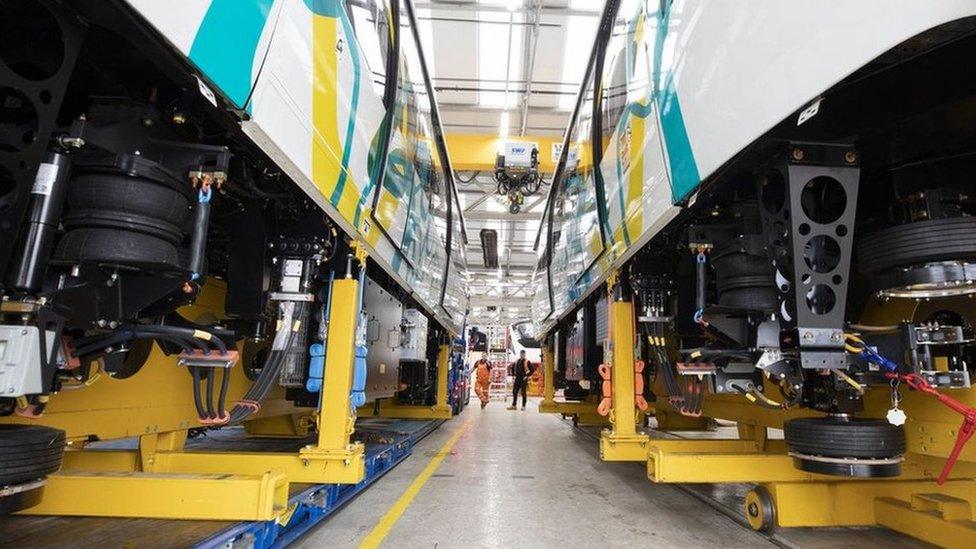Why have things gone off the rails at Alstom?
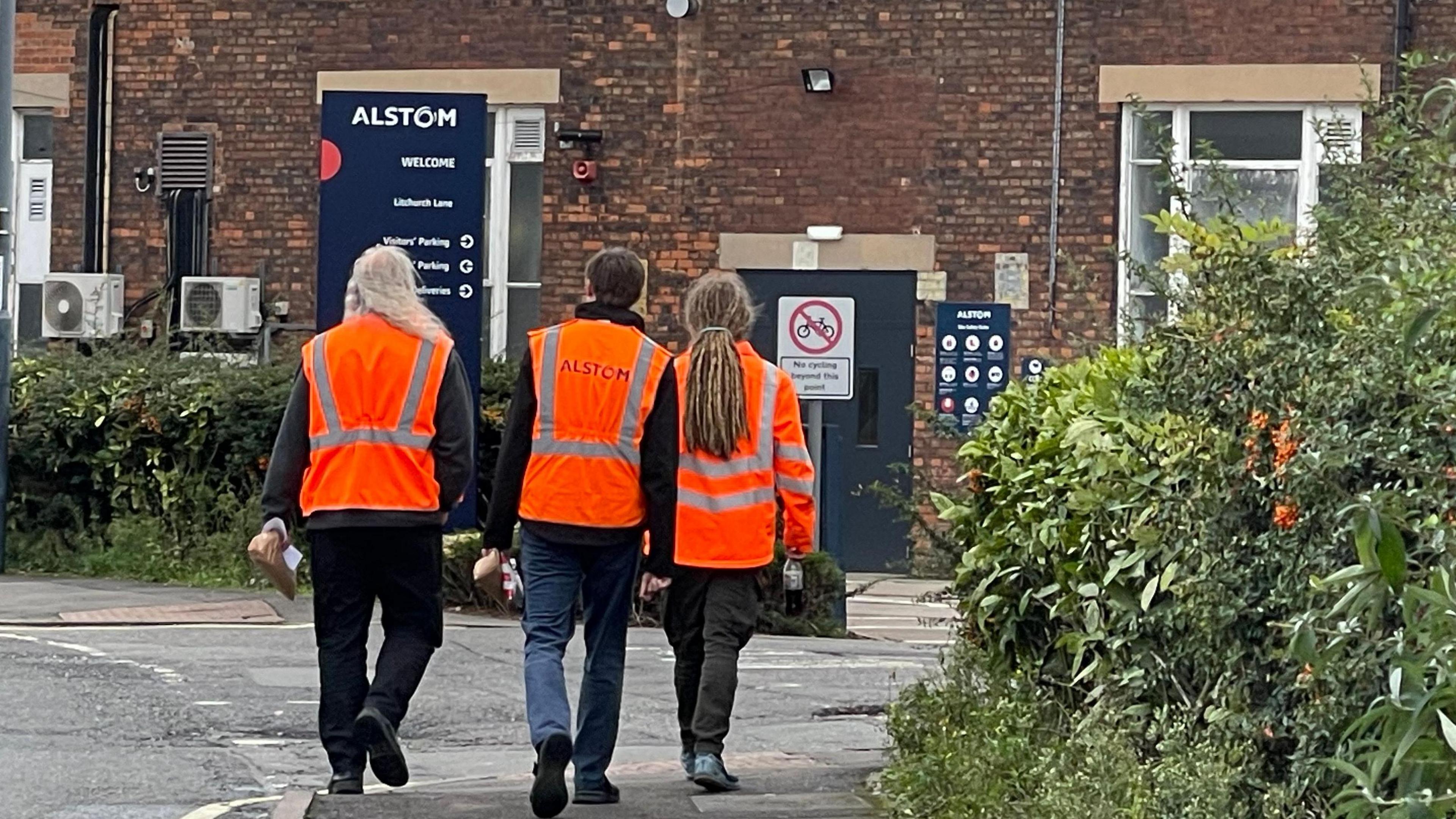
Hundreds of skilled staff are facing an uncertain future
- Published
There are fears for the future of Alstom's rail assembly factory in Derby due to a lack of orders.
The company says 1,300 permanent jobs could go and there are major concerns about the knock-on affect for other businesses in the supply chain.
BBC News looks at how the crisis has come about.
According to Alstom's managing director Nick Crossfield, the company can no longer guarantee a presence in the city because the main production has finished, with a gap until 2026 for the next order.
If the Litchurch Lane factory does close, the UK would be the only nation in the G7 without a site able to design, develop and manufacture trains, the firm said.
Mr Crossfield added it also would have a "considerable" impact on the national supply chain - with a further 15,000 jobs at risk.
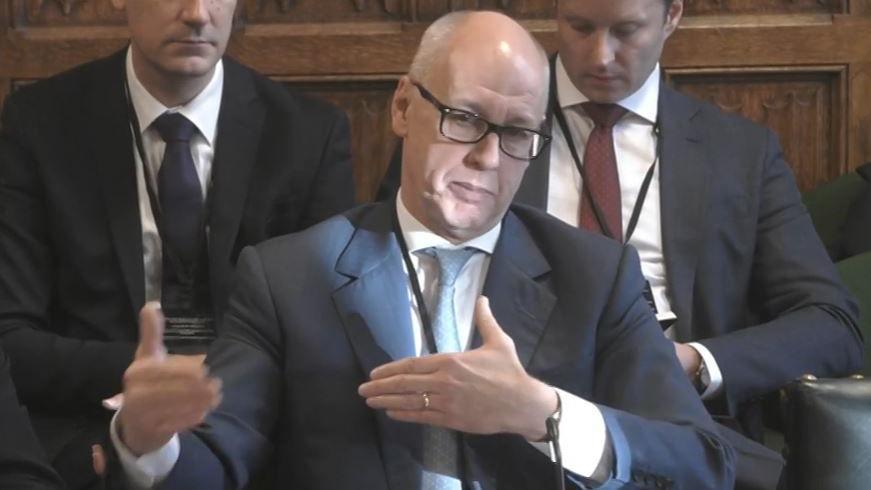
Nick Crossfield, managing director of Alstom, spoke to MPs in December
Alstom currently employs 3,000 people in the city - more than 1,000 are permanently based there, and many others are contractors.
Contractors employed by Alstom are professionals who provide skills or services for a fixed period.
They may be contracted for a set number of hours, a specific time frame, or for a project’s duration.
Three generations of Chris Cope's family have worked at Alstom - he said morale is low and there was "devastation everywhere".
He added some workers have had "nothing to do" for the last few weeks and a lot of temporary contractors have already been let go with those left with "days or weeks at best".
"I was always brought up believing that it was a job for life," he told the BBC
"But to find out that's not true... it's upsetting."
The site, which has been in Derby for 147 years, is facing the prospect of mass redundancies.
The factory - which became Alstom from Bombardier in 2020 - has always had a steady stream of orders to keep workload ticking over.
But some commentators say things began to change in 2009, with increased competition both at home and overseas.
About 15 years ago, Bombardier lost out on a contract to build a fleet of inter-city "super express" trains to Japan's Hitachi which replaced ageing high-speed trains on the Great Western and East Coast main lines.
The firm then lost out to Siemens in a bid to grab a £1.4bn contract for London's Thameslink programme - which included building 1,200 new carriages - in 2011.
A month after missing out on the contract, Bombardier announced plans to cut more than 1,400 jobs at the Litchurch Lane site.
The decision to award Siemens the contract prompted fury from MPs and a protest march with up to 6,000 people in Derby.
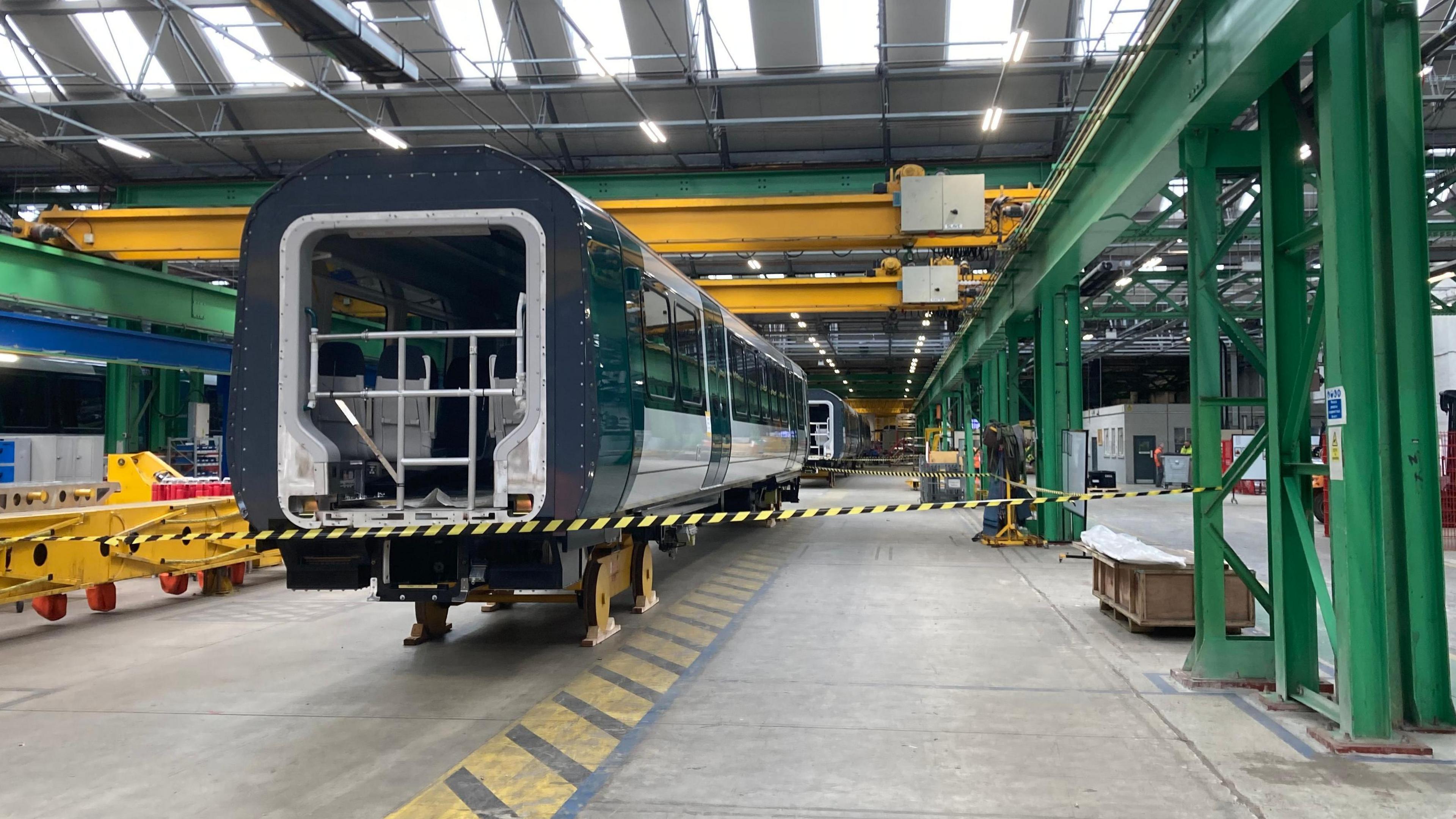
The factory has been in the city for nearly 150 years
The company was given a reprieve in 2013 with a £180m contract to build 116 electric rolling stock trains for Southern, but an even bigger lifeline came the following year.
Bombardier secured a £1bn contract for London's Crossrail to build 65 nine-car trains and construct a new purpose-built depot. The deal also included maintenance provision.
In 2020 the firm, now Alstom, was awarded a £2.3bn contract to build 70 four-car monorail trains for a transport project connecting the Egyptian cities of Cairo and Giza.
It was the company's first large export project for many years.
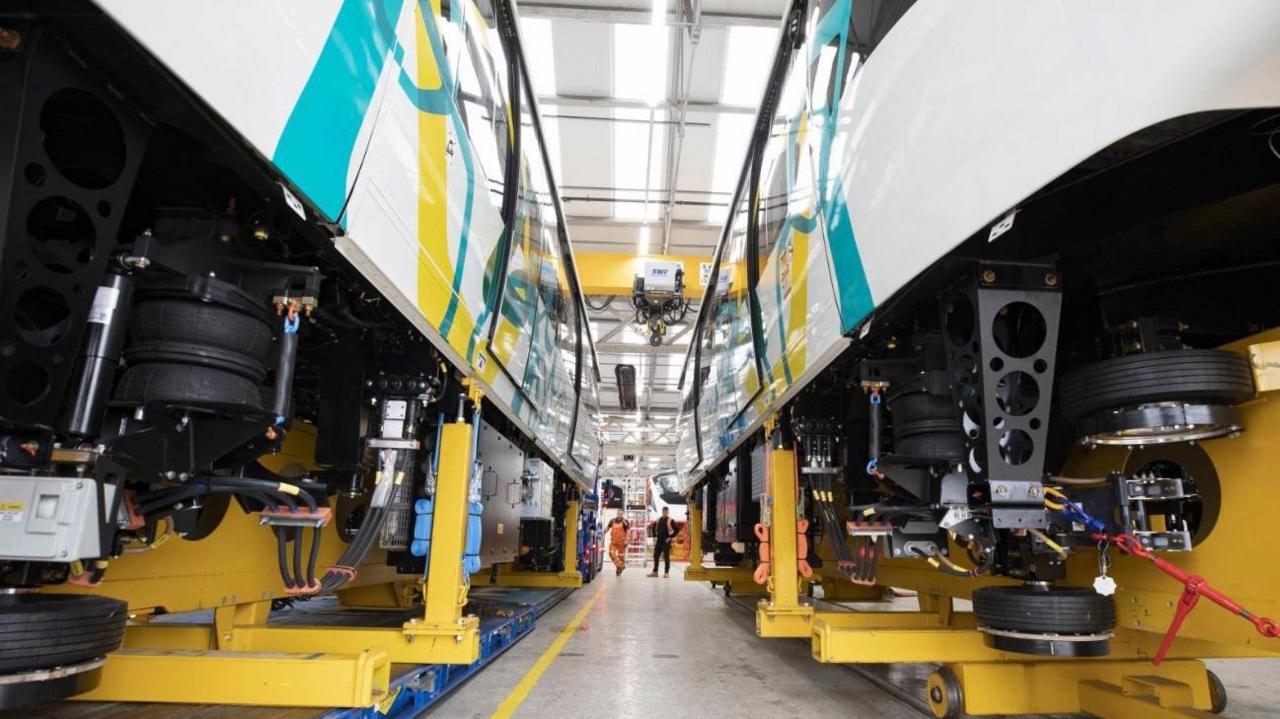
The Egyptian monorail order was secured in 2020
However, Alstom bosses warned in September 2023 that potential new contracts might not arrive in time to save jobs.
Many have laid the blame for this at the government's door.
The company said there were opportunities to bid for work that they had been made aware of since 2020 but added there was "no guarantee any orders will be placed".
Alstom said it was not asking for a bail-out or for guaranteed orders to come forward but for the government to bring forward tenders.
Unite general secretary Sharon Graham said there was "absolutely no justification" for the proposed job losses.
She added it was "madness" that there is a "huge amount of work" that Alstom could be bidding for but the government has "not got around to tendering for it".
Alstom has said it expects a large push of train companies in updating dated stock over the coming years.
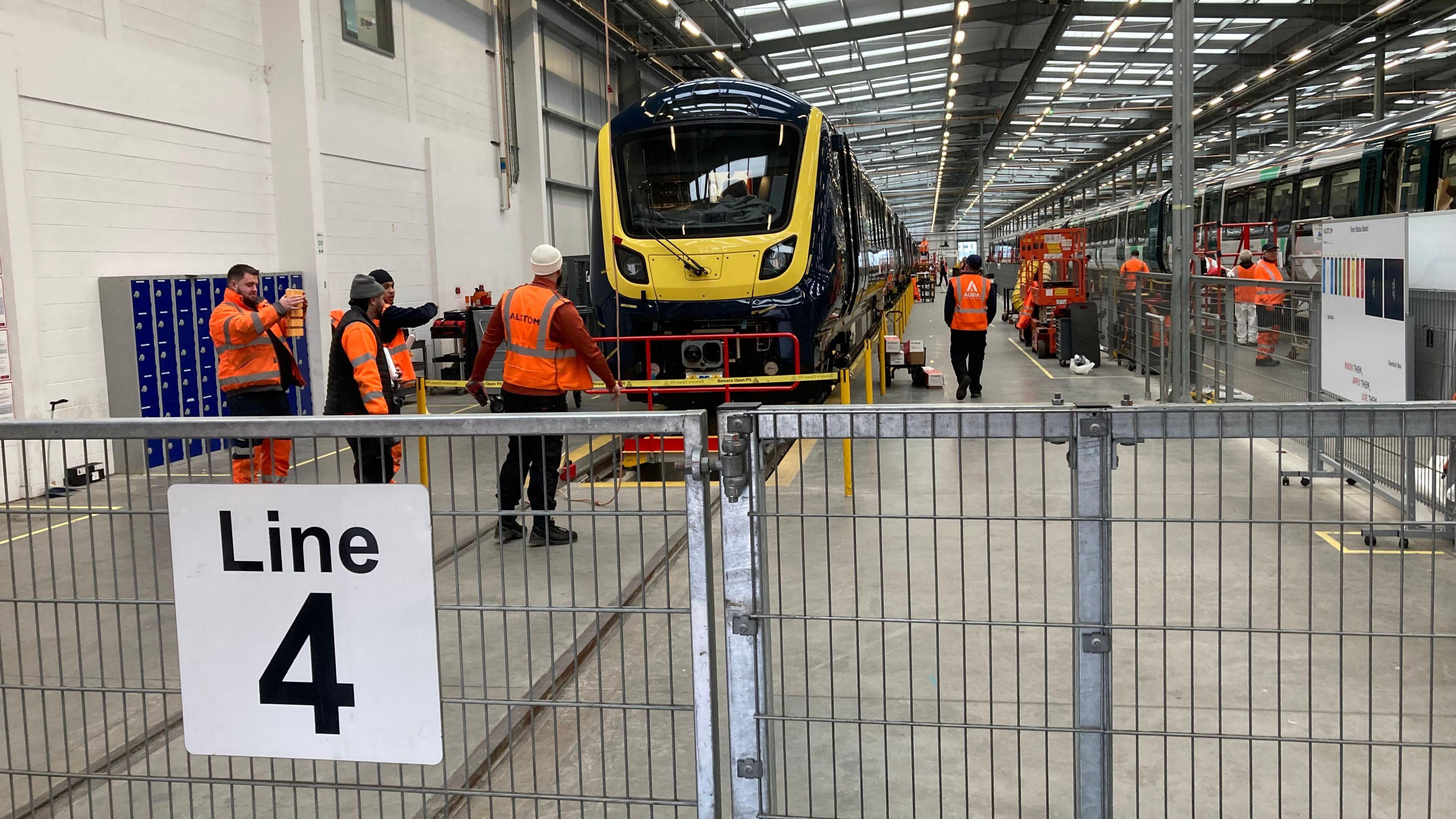
The prime minister said the government was doing all it could to help
The factory has smaller-scale ongoing work but it has no major manufacturing projects until HS2 in 2026.
The firm was relying on large orders to supply HS2 but these have been delayed, along with the wider project.
The Unite union said scaling back HS2 and delays in its construction were to blame for Alstom's job cuts fears.
But Prime Minister Rishi Sunak, speaking in Derbyshire in November, said it was not "fair or accurate to characterise it" as a HS2 problem.
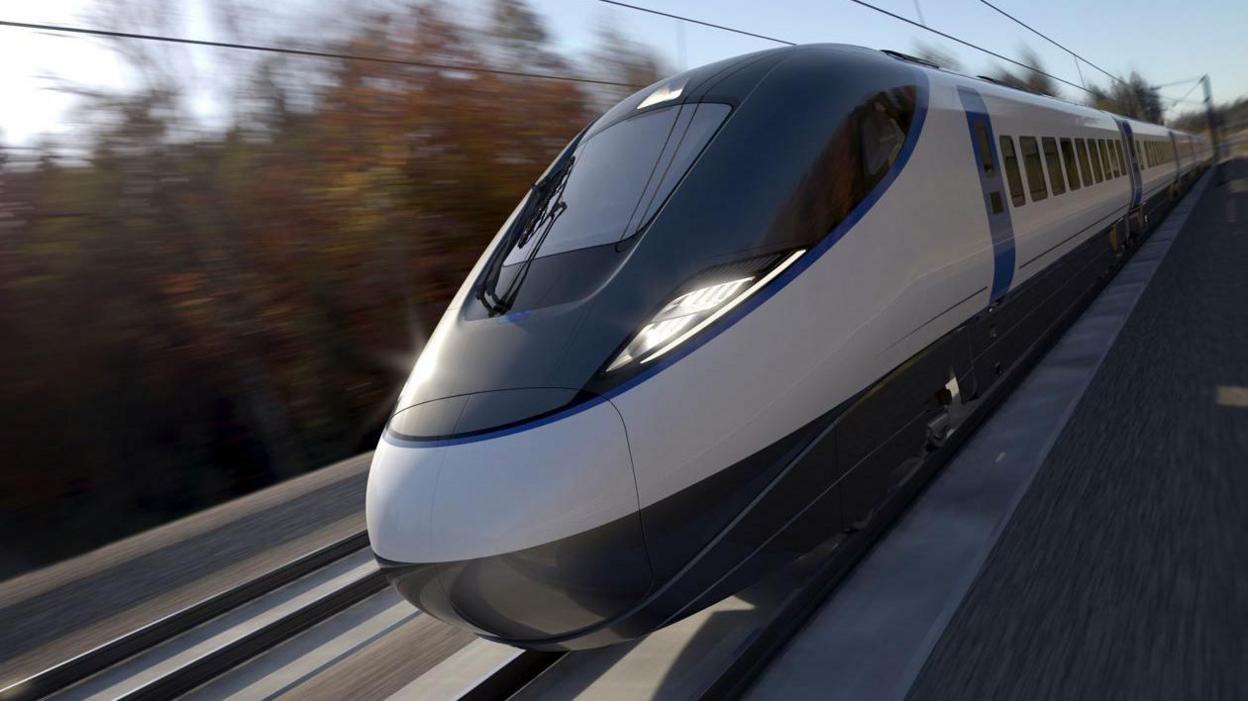
The next big project in Alstom's order book is HS2, expected in 2026
Intense lobbying is well under way from a range of interests, most notably from Alstom, MPs, Derby City Council and unions.
Alstom said after 10 months of discussions, they have "all but run out of time" and the government "need to provide the much-needed certainty" to the staff and supply chain.
In a visit to Derbyshire in March, Mr Sunak said the government was "doing everything it can to support the supply chain" and make sure there is a "good pipeline of work".
Follow BBC East Midlands on Facebook, external, on X, external, or on Instagram, external. Send your story ideas to eastmidsnews@bbc.co.uk, external
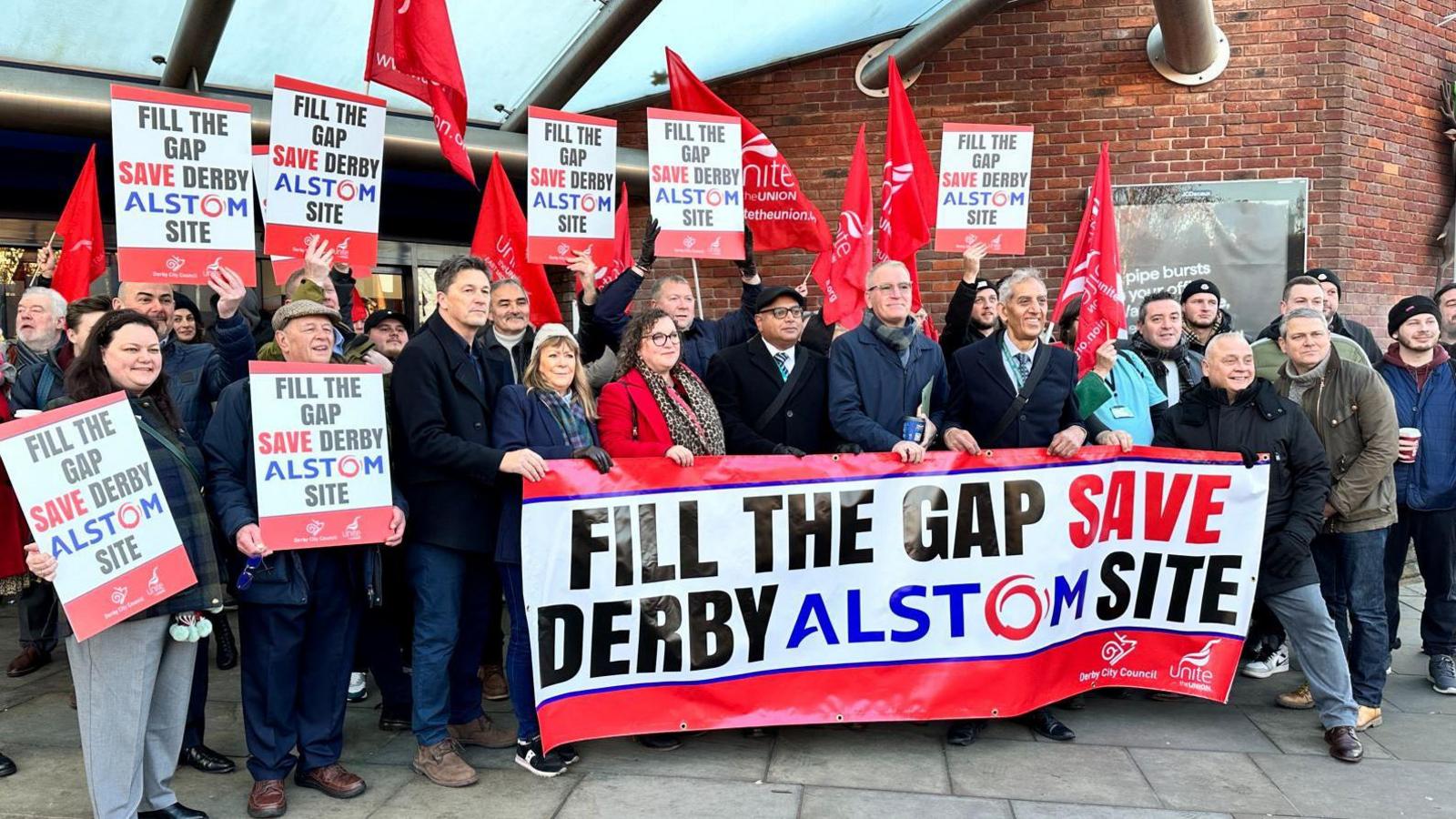
Workers, unions and politicians lobbied Parliament last year
Related topics
Related links
- Published2 April 2024
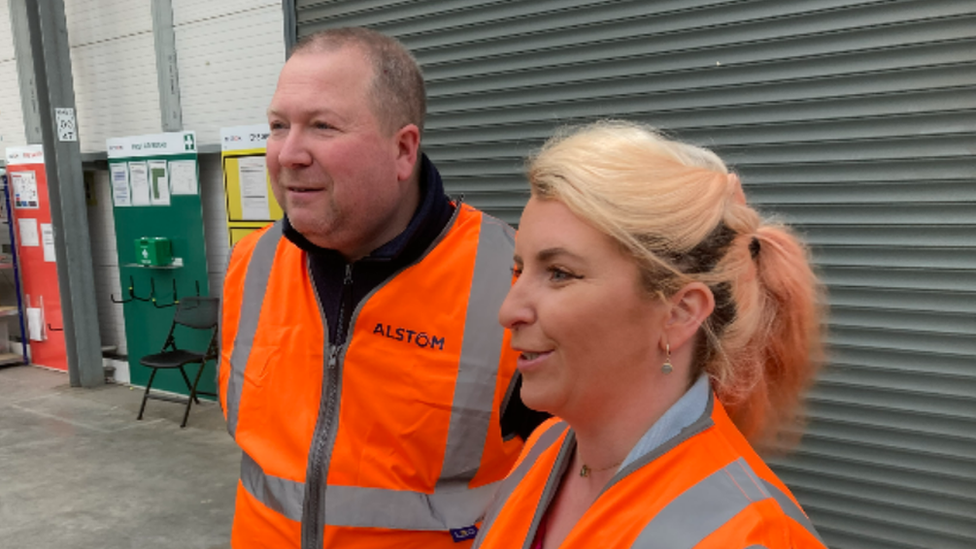
- Published20 March 2024
